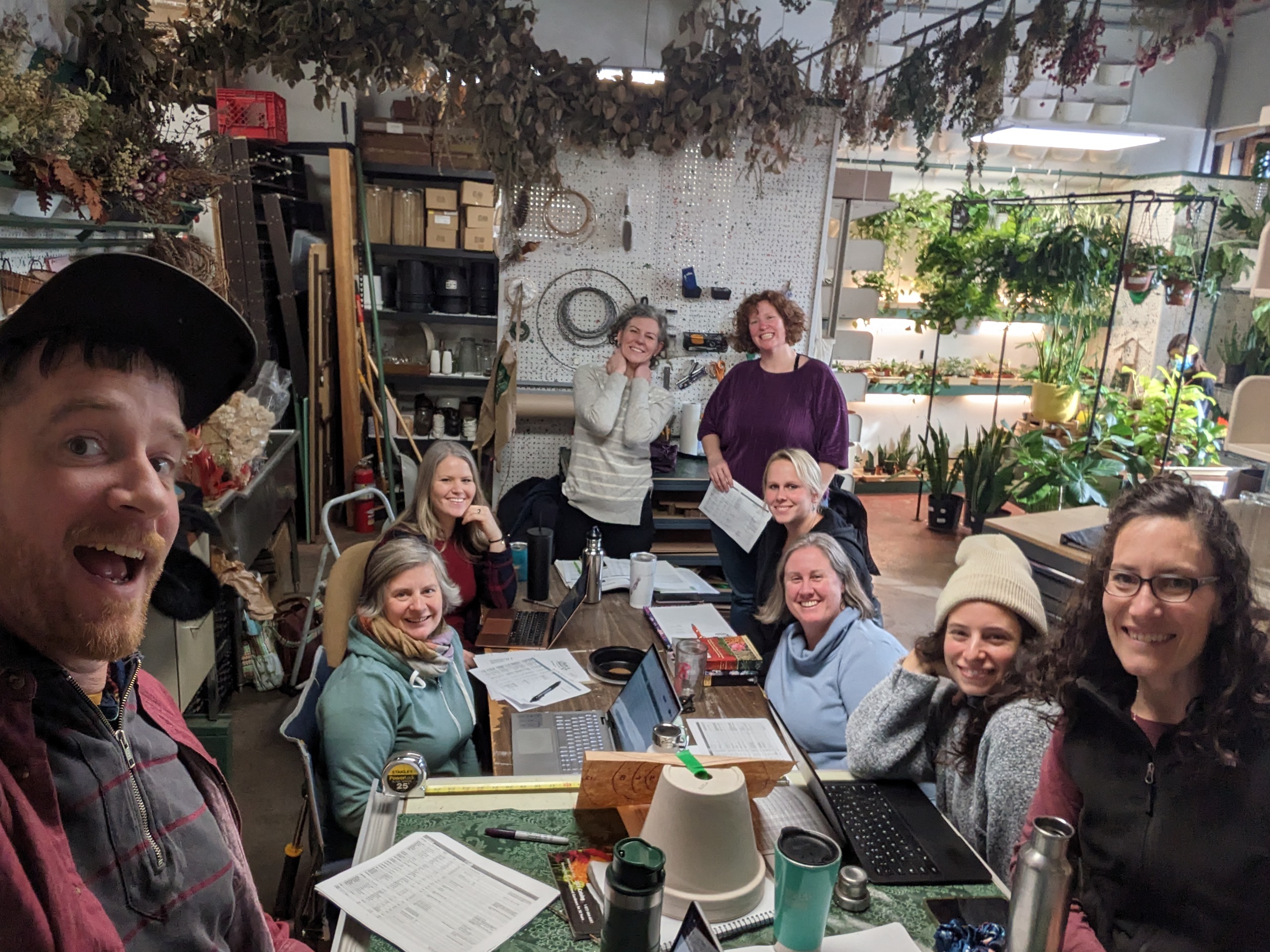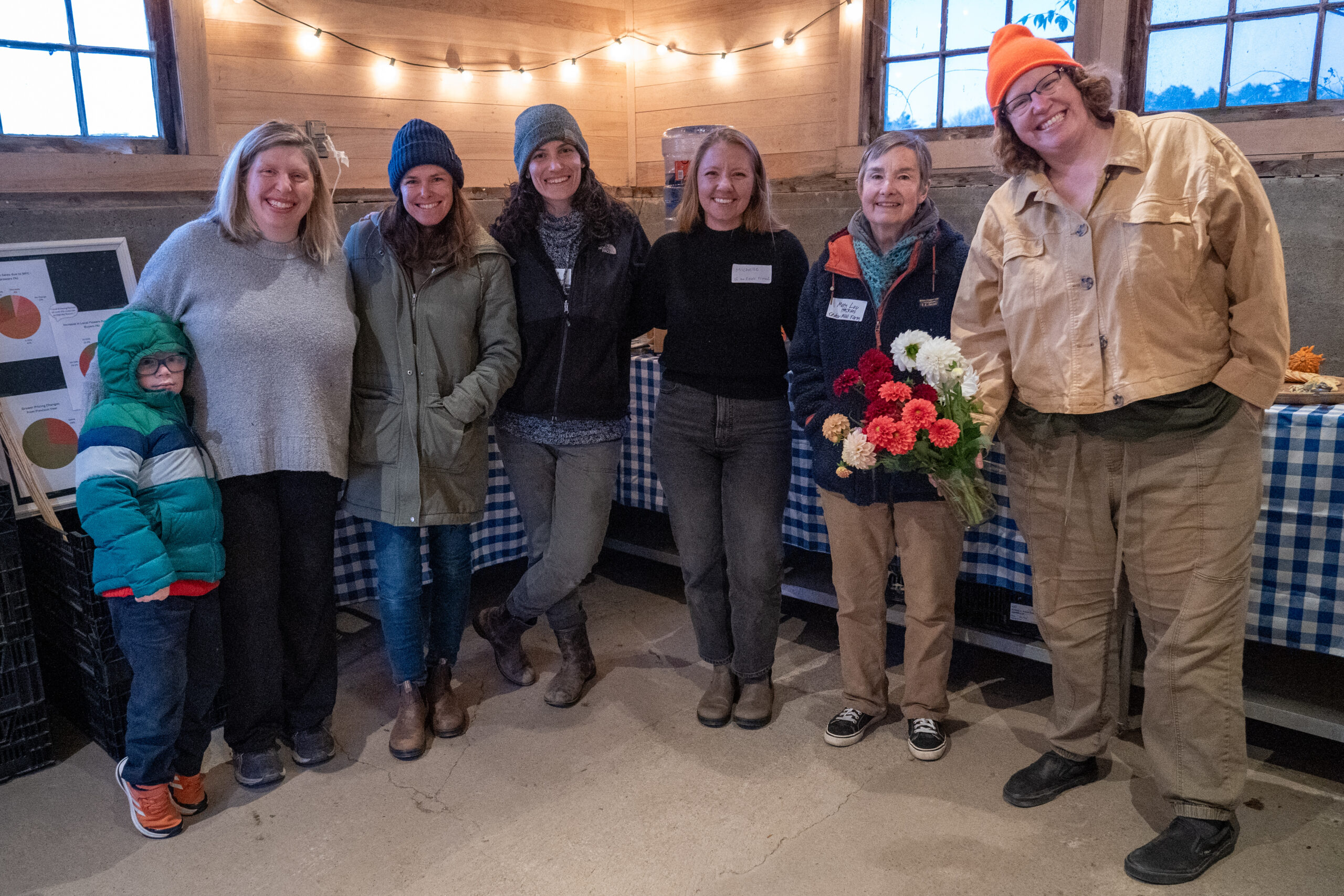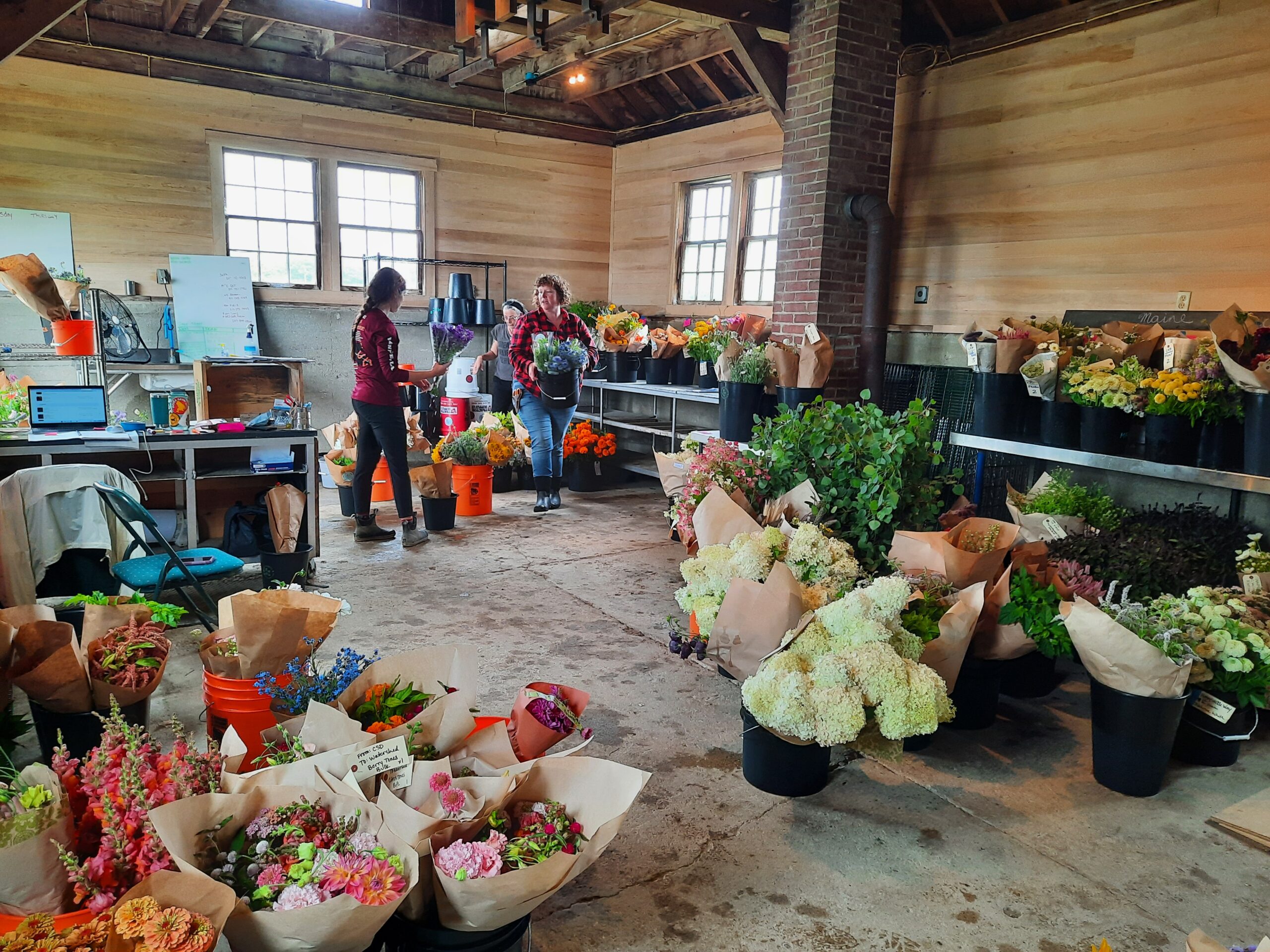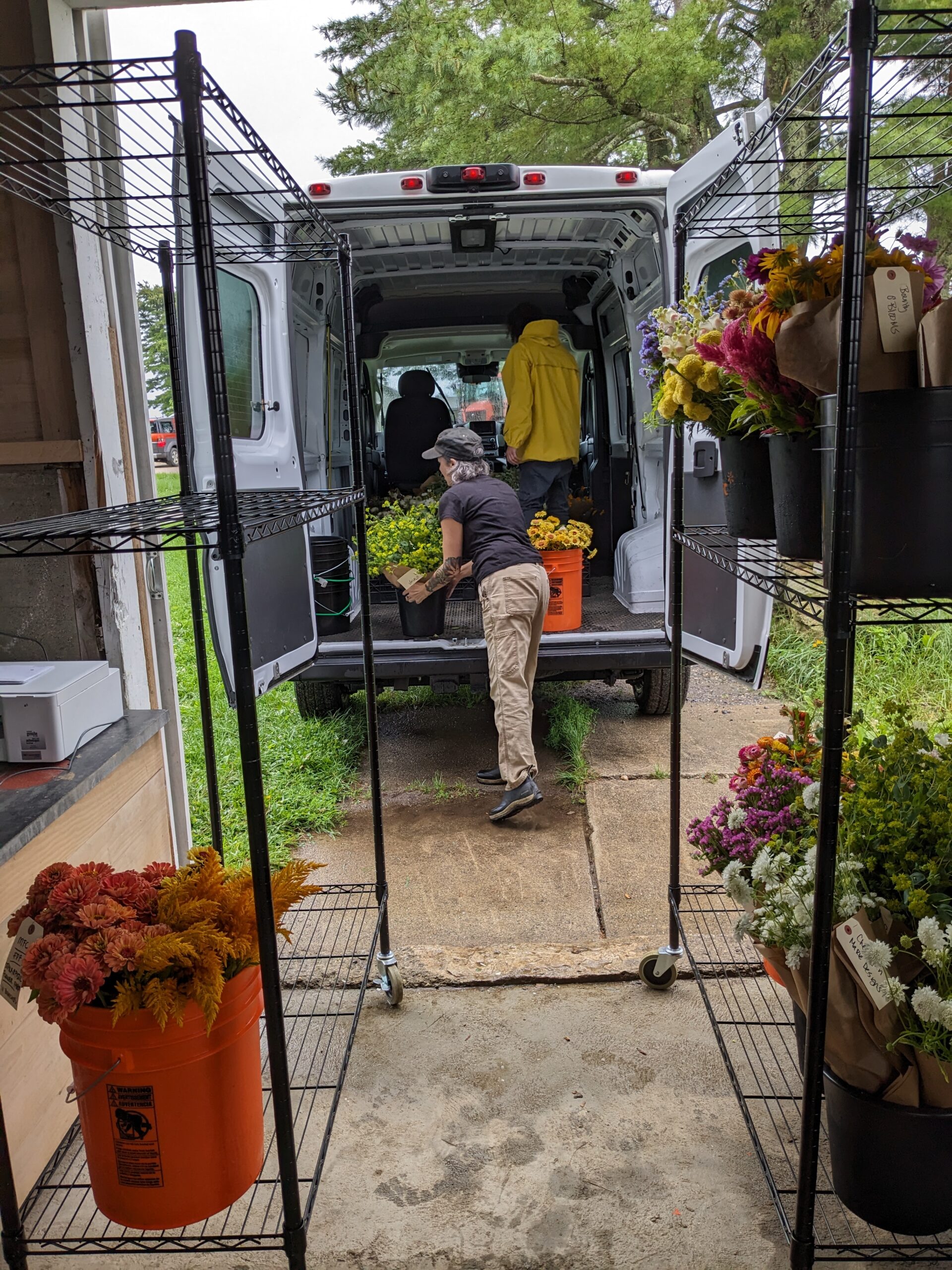
Maine Flower Collective blooms and grows after first year
In a world where imported blooms typically dominate our bouquets and arrangements, there remains a healthy demand for local, seasonal flowers in Maine. Ranunculus, Lisianthus, dahlias, and hydrangeas are popular for being the beautiful workhorses of flower designs, but they don’t particularly ship well. Growing them locally makes sense.
However, connecting buyers to growers that are spread far and wide across Maine is not easy. The climate and seasons differ in each part of the state, so knowing which growers will have the flowers that buyers need can be a guessing game. There isn’t a one-stop shop for local flowers in the state.
The lack of a steady supply chain for local flowers was felt even more acutely when Bennett’s Wholesale Florist, based in Bangor, went out of business in 2020, said Mary Lou Hoskins, owner of Cedar Mill Farm in Exeter, and President of the Maine Flower Collective, which was founded in 2021.
After the loss of Bennett’s, a community member who worked for the Maine Department of Agriculture at the time pushed a group of growers to band together and fill the gap left behind.
She convinced the growers to apply for the Specialty Crop Block Grant, a federal USDA grant that could help them organize and form a cooperative. A cooperative model would allow the growers to keep running their own businesses but also to work together to patch together a supply chain that would make it easier for buyers to buy and sellers to sell local flowers.

“A group of us all met by Zoom. We planned a survey to feel things out and see what the interest was and there was plenty of interest,” said Carolyn Snell, owner of Carolyn Snell Designs at Snell Family Farm and one of eight founders of the Maine Flower Collective.
The group was awarded a grant of $93,500 in the Fall of 2021. It would give them enough to support the collective through the organization process and its first year of operations. The grant also allowed them to hire their first full-time employee, an operations manager, which has been very helpful as the collective aims to scale their business.
They spent most of 2022 working with the Cooperative Development Institute (CDI) to figure out how to form a cooperative, legally and thoughtfully. CDI helped the group set up their boards of directors, determine the best co-op model to fit their needs, and learn how to work and plan together to run the cooperative.
“It was both painful and exhilarating,” said Hoskins. “Having CDI there for us was so helpful because they are familiar with the structures and models of cooperatives. There was a lot of communication and building consensus. All of us own businesses and we want to be executive. But we realized that we are usually in a much better place at the end when we work together and give ourselves time and grace to build. You have to surround yourself with smart people.”

The Maine Flower Collective launched sales online (pre-sale and wholesale) in mid-April of 2023 with great success. By August and September, they had exceeded their weekly estimates for sales and sold into December.
The cooperative uses a software platform that works like an online marketplace, where growers can join to sell their flowers and buyers can join as users to buy the products they need.
The Maine Flower Collective’s model is structured so that growers and floral professionals can become member-owners of the cooperative, meaning they can vote on all business decisions. As of today, the cooperative has 20 member-owners, 12 of whom joined just this year. But not everyone who buys or sells through the cooperative needs to be member-owners.
To be a user, you must be a grower or a floral professional. The Maine Flower Collective currently has 90 annual users made up of a mixture of buyers and growers. The marketplace is already doing remarkably well this year. When they post their list of available flowers at noon, many flowers often sell out by 1 p.m.
This year, the collective is planning to have a wholesale in-person market only for the first time. They want to encourage buyers to pick up their orders rather than rely on delivery. The wholesale market, scheduled to run May 1 through October (depending on the weather), will be located at Crystal Spring Farms in Brunswick.
Although the collective is aiming to reduce the number of deliveries, they still need to transport flowers from growers to the market, or hub as they call it. As of now, they’re renting the vans they need for this transport, but they want to buy their own van to reduce costs.

One of the goals of the collective is to get as many Maine farmers to join as possible, but there is still a big chunk of the state, northern Maine in particular, that they don’t cover. The collective is considering what to do about that, including whether they should open another hub further north.
The collective is conducting market research into ways to expand both supply and demand, including finding ways to grow during the shoulder seasons and encouraging growers to force blooms in May. Currently, the peak season for the collective is June through September, when many weddings are happening. They hope that by expanding supply they can extend their reach to more brick-and-mortar shops as well.
“I’ve been selling flowers to designers for a while. Now with the collective, I don’t need to serve every local flower they could need,” said Snell. “There are other growers that can fill any gaps that I might have. It takes some of the pressure off. It’s spreading out the risk and responsibility of serving folks. But the best part is the relationships we are building for sure.”
“It’s not an extractive, capitalist model. We’re helping our members improve their businesses. We’re solving problems that we all have, solving them together elegantly, and it’s been amazing.”
We can’t do it without you! Support our mission to create economic opportunities across our region by making a donation!
